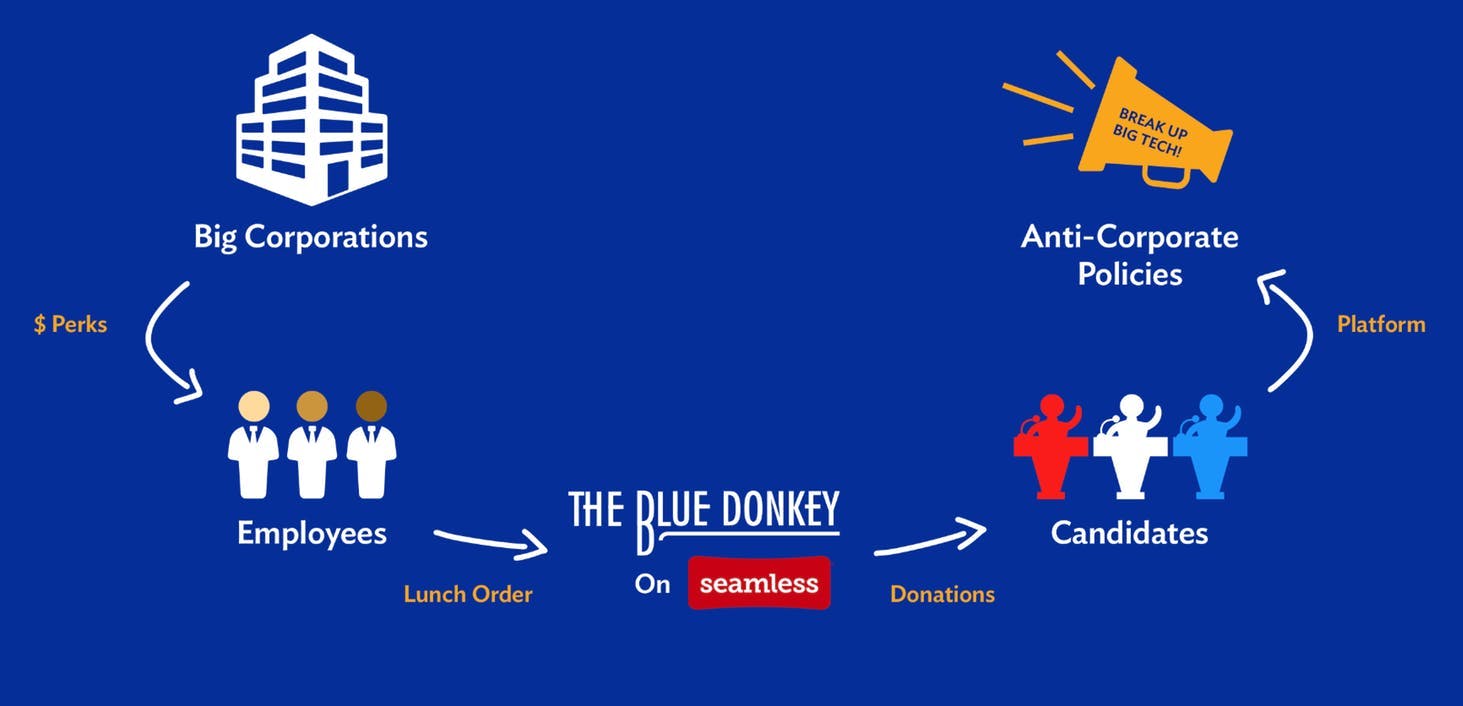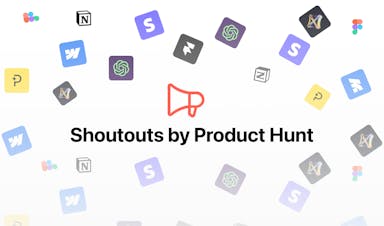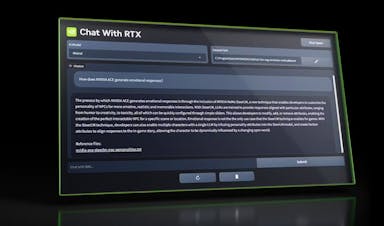How to Launch a Product According to the ‘Banksy of the Internet’

In their text last night, MSCHF speculated that Seamless might shut their latest project down. If that doesn’t happen, they'll kill it themselves.
MSCHF doesn’t want you to talk about MSCHF. With a simple website that archives bi-monthly product drops and social media handles that say “please don’t follow us,” MSCHF would rather steer the conversation towards the mischief they're causing on the internet.
Last month, MSCHF made waves when they sold out their $1,425 “Jesus Shoes,” a line of custom Nikes filled with literal holy water; Drake bought a pair and Seth Meyers quipped about them on his show. According to MSCHF Head of Commerce Daniel Greenberg, the shoes were the Brooklyn-based company’s most successful drop to date. By what metric? They were talked about.
It’s hard to define what MSCHF is exactly — they mostly build wacky products in a black box. You could call them a startup or a product studio or a group of nine employees, but they don’t think of themselves that way. “As corny as it may sound, we think of ourselves as Banksy of the internet,” said Greenberg. “Because our products get so much press, we don’t really have a PR agency or anything like that. A lot of our stuff we just sort of share day-of with our friends and then the magic happens.”
MSCHF drops a new product on every second and fourth Tuesday of the month via an SMS list. The company doesn’t run any paid ads to market their products, and it recently ditched its strategy to partner with brands on launches.
The SMS list gets details on the drop the day before the public launch (if you want in, text 917-905-6951), meaning this group got a text last night. They were warned today’s drop might be illegal.
The latest product from MSCHF is called ‘The Blue Donkey’ — it’s a fake restaurant on food ordering app Seamless that lets people reroute corporate meal perks to U.S. presidential candidates. How it works: you choose a political candidate, choose your “food” (the company will never deliver real food), order it, and expense it.

“Think about the poetic justice if Facebook employees are using this,” said Greenberg. “They would be using Facebook’s money to donate to Elizabeth Warren’s campaign.”
In their text, MSCHF speculated that Seamless might shut the project down. If that doesn’t happen, MSCHF will kill the product themselves.
“We’re in this unique place because we’re doing something new every two weeks, and some people love hearing this and others just don’t get it, but we basically take the projects out back and shoot them,” said Greenberg.
For example, the MSCHF team has no plans to spend any more time on Bull & Moon, the astrological stock picker app they launched two weeks ago. The app won’t disappear off the App Store, but don’t expect a V2 or fixed bugs.
In this sense, MSCHF does resemble Banksy more than anything, in that their product drops are internet art projects of impermanence. They’re meant to spark cultural commentary that make people think and move on.
Greenberg describes the drops themselves as a “cycle of dopamine and waiting,” similar to TV shows that release one episode per week or HQ Trivia in its heyday. MSCHF uses this strategy to grow its SMS list as well as its team. One of the primary qualities the company looks for in candidates is that they are die hard fans of MSCHF.
“The hope is that as our fans get accustomed to these drops on the second and fourth Tuesday of every month and it’ll get to the point where they get the dopamine hit,” said Greenberg. “Then two weeks later, they’ll be so eager for that hit that they’ll be waiting on the MSCHF site or for us to text.”
So see you all in two weeks?
Comments (2)
Troy Cobb
Michael Eatonn
Michael Eatonn
More stories

Aaron O'Leary · Announcements · 2 min read
Introducing Shoutouts

Finn Lobsien · Opinions · 5 min read
Can Devin AI Replace Product Managers?

Aaron O'Leary · News · 2 min read
Meet Nvidia's new localized AI chatbot

Sarah Wright · News · 2 min read
The top 15 AI products from 2023


